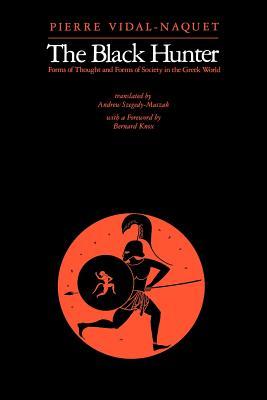"No one can fail to admire the brilliance of the connections Vidal-Naquet suggests . . . Audacity has been characteristic of Vidal-Naquet's career from the start; it marked his activities as a historian engag in the political struggle; it is visible at work in every page of this book."--Bernard Knox, from the Foreword
The black hunter travels through the mountains and forests of Greek mythology, living on the frontier of the city-state, of adulthood, of class, of ethics, of sexuality. Taking its title from this figure, The Black Hunter approaches the Greek world from its margins and charts the elaborate system of oppositions that pervaded Greek culture and society: cultivated and wild, citizen and foreigner, real and imaginary, god and man. Organizing his discussions around four principle themes--space and time; youth and warriors; women, slaves, and artisans; and the city of vision and of reality--Pierre Vidal-Naquet focuses on the congruence of the textual and the actual, on the patterns that link literary, philosophical, and historical works with such social activities as war, slavery, education, and commemoration. The Black Hunter probes the interplay of world view, language, and social practice "to bring into dialogue that which does not naturally communicate according to the usual criteria of historical judgement."
